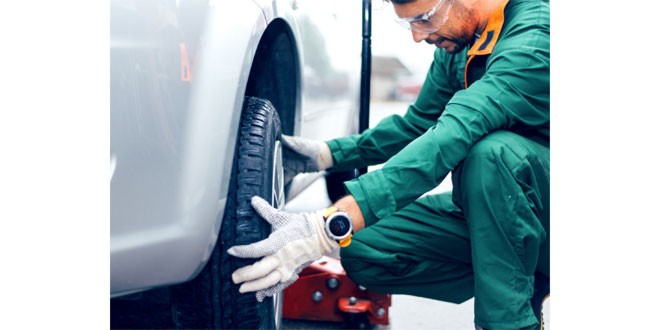

We don’t tend to think of air as being dangerous, but when it’s discharged under pressure, a whole load of safety hazards can potentially happen. If an air compressor, or an inflation process, fails, this can cause explosions and cause severe injury in the workplace. More commonly, accidents involving air pressure equipment occur from operator error. That means compressed air safety tips, safety procedures, risk assessments, maintenance schedules and training programmes are essential to follow to minimise the potential for accidents.
Whether you’re working in a motor garage or an industrial warehouse, here are some useful compressed air safety tips to follow.
It sounds illogical but directing compressed air towards someone can be lethal. Back in the old days, people used to give their work overalls a quick blast with an air gun to clear off the muck. However, using compressed air against its intended use can be damaging. Consider that air at as little as 1 bar can pop an eye out and at 3 bar it can burst an eardrum from a few inches away. It’s important to remember that compressed air is not safe to breathe in and air compressors should only be handled in a safe and professional manner.
Carrying out a series of checks before operating an air compressor will ensure it performs safely and efficiently. Check the following before use:
? Oil level
? Fuel level if applicable
? Ensure the compressor is securely fitted to its air source
? That the air filter is not dirty or clogged
? Hoses and lines are free from holes and tears
? If using an electric air compressor that is correctly grounded
? Ensure all components, hoses, pipes and fittings are rated for the maximum pressure of the compressor
? Check any connected tools to ensure the trigger is not engaged
? That all guards on moving parts are secure and in place
A fully implemented preventative maintenance schedule will prevent most problems from occurring and ensure the equipment operates at its optimal performance levels.
In many industries, it’s important that workers wear personal protective equipment (PPE) to ensure that they are protected at work and that they follow workplace safety guidance. In warehouse environments, there are many warehouse safety hazards to be aware of in daily operations. Slips, falls, working with machinery, and working with hazardous materials are common hazards to be mindful of when working in a warehouse and in other workplaces. But wearing PPE and following the proper safety protocols and guidance can ensure that workers are safer at work.
When working with compressed air, PPE such as impact-resistant gloves and goggles are essential wear before commencing any task involving an air compressor. Wearing a dust mask can also protect the face and airways when air compressors knock up dust, dirt and debris. For more compressed air safety, hearing protection will also usually be necessary and a good pair of steel-toe boots will protect the operator from any falling objects, including the compressor itself if it’s a portable model.
When working with an air compressor certain sounds or features might suggest there is an issue with the equipment. Keep an eye and an ear out for:
? Error messages on any monitoring system
? More noise, knocking or rattling than usual
? Excess moisture or condensation
? A loss in air pressure or inconsistent air pressure levels
? Signs of overheating
? Excessive oil consumption or noticeable oil in the discharged air
? Breakers tripping frequently on electric models
Professionals must be vigilant with compressed air safety as it’s essential to stay in control of an air compressor at all times. Maintain sound footing and position the unit on a solid level footing. Keep hands, clothing and hair away from the machine. Also, make sure you have adequate space to work, that other people are clear from the immediate vicinity. Because air compressors are used in a wide variety of industrial, commercial and domestic applications, staying safe means knowing what the job is and just what the compressor can do and how you use it. There are many benefits of an air compressor for your business, so doing machinery research prior to purchase can help you find the right equipment for your company.